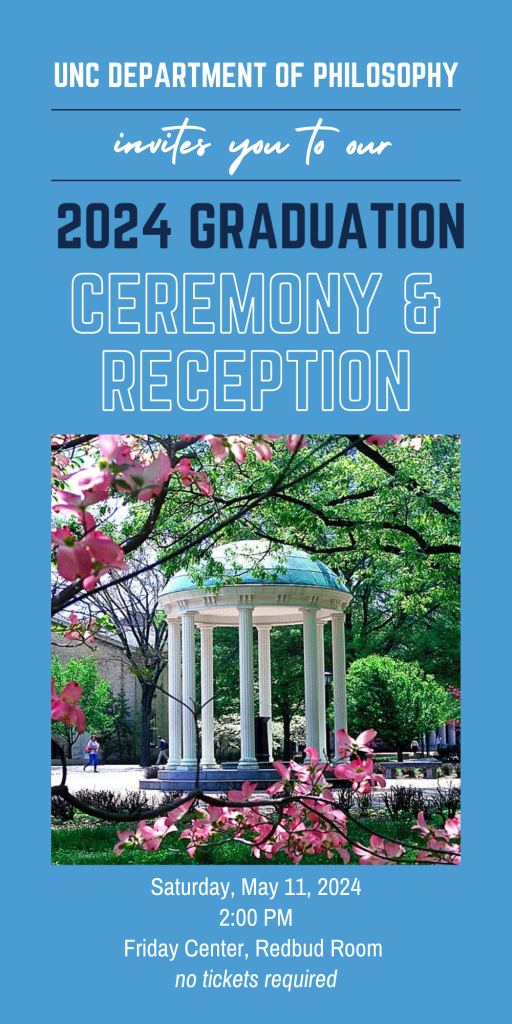
- This event has passed.
Spring 2024 Duke + UNC Ancient Philosophy Works-in-Progress Series (Mariska Leunissen)
March 1 @ 11:30 am - 1:00 pm
We are delighted to announce the Spring 2024 lineup for the Duke + UNC Ancient Philosophy Works-in-Progress series. All are welcome to join us!
Meeting #1: Friday March 1, 11:30am – 1pm (Mariska Leunissen, UNC-CH)
Meeting #2: Friday April 19, 11:30am – 1pm (Geoff Sayre-McCord, UNC-CH)
Both meetings will take place in the UNC Philosophy Department Library (Caldwell Hall, 106A). The title and abstract for the first session are below.
Mariska Leunissen, “Maternal Love in Aristotle’s Ethics”
Abstract: This paper provides a reconstruction of Aristotle’s conceptualization of maternal love in his Eudemian and Nicomachean Ethics. In doing so, I will defend the following two claims. First, I argue that he appeals to maternal love in his examination of friendship in two separate argument-pairs to bring out the characteristics of the affective dispositions of love and care that he thinks by nature belong to philia and that human mothers are thought to possess and display the most. Secondly, I argue that Aristotle’s descriptions of maternal love in this context evoke – wittingly, I think – tragic tropes pertaining to maternal love that would have been familiar to his audience. The existence of these references and intertextualities with Greek tragedy are relevant for how we interpret these texts and also for how we interpret Aristotle’s stance on maternal love and the value of parenting by mothers more generally. In short, instead of breaking away from the common tropes that permeated Greek culture and literature about the depths and dangers of maternal love, Aristotle reaffirms them: by nature, i.e., through their innate disposition as well as by the painful experience of childbirth itself, human mothers experience loving feelings for their offspring the most deeply, but their unwavering, unconditional, and self-sacrificial love also poses a potential threat to the public good, obstructs the formation of civic friendship for women, and reaffirms women’s alleged natural place as caretakers of children and provisions within the household. On my account (and pace recent literature on this topic by Brill, Connell, and Ward), mothers provide particularly clear and striking examples of a particular type of emotional disposition that Aristotle thinks belongs by nature properly to philia, but this does not make mothers friends to their children, nor does mothering constitute some kind of virtuous activity for Aristotle; instead, mothers ‘simply’ love and protect their children exactly as nature intended them to do.
Please do not hesitate to reach out to us with any questions, and please feel free to circulate this information to any interested parties. We hope to see some of you there!
Warmly,
Michael Vazquez (UNC Philosophy)
michael.vazquez@unc.edu
Wenjin Liu (Duke Philosophy)
wenjin.liu@duke.edu


